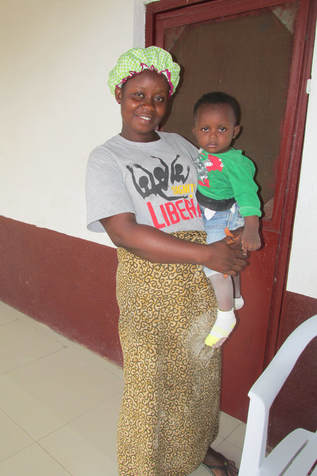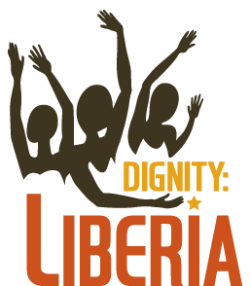
Interview Date: September 4, 2018
Interview Location: Phebe Rehab Center, Bong County, Liberia
Interviewers: Kathy Beth Stavinoha and Kathi Gutierrez
Fatu Tokpah grew up in Monrovia. She was born September 28, 1990 in Duside Hospital on the Firestone Plantation where her father works as a driver and a heavy duty mechanic. He is still alive but her mother has passed. She has eight brothers and sisters. Her father has five children by her mother and four from another. She did not go to school.
Fatu got her fistula on October 11, 2016. Three days after giving birth, she saw that she was soiling herself, but she couldn’t feel it. She had heard of the “poo poo and pee pee sickness,” but did not know that it was called “fistula.” When she came down with fistula, she used to cry and worry. She felt that she would never get well and that her life was over. She thought she would never feel like a woman again.
Her father and her little sister took her to the hospital but the staff there sent her to the fistula center. They told her the people at the center would help her. They would treat her, give her a place to stay, and feed her. They said, “They will do everything for you.” A nurse gave them directions and they took her to Phebe.
She’s had two surgeries and she still leaks a bit but it’s much better than before. Previously, she had to change her clothes 9 and 10 times a day but she’s much better. She will stay in Phebe and have another surgery.
She is married but her husband has abandoned her for now. She doesn’t know if he will take her back when she is dry, but she hopes that he will because she doesn’t want to have children from different fathers. She has a little boy named Joseph who was born in Monrovia. She also has an 8-year-old daughter who currently is staying with her father.
The worst thing about having a fistula is that nobody comes around you. Not even your parents and family. Everybody stays away. Only her father and little sister helped her. Her father is very old and couldn’t really take care of her. Her sister is very small, but she was the only one to come around her. Her other sisters and brothers and friends stayed away from her. It made her cry for many days. It really broke her down and made her feel really bad.
At the Phebe Rehabilitation Center, she learned cosmetology as her trade. She likes doing hair and nails. When she graduates, she prays that she can do hair because almost all the young girls want to look good. They want to see their hair fixed and see themselves looking good. She hopes that with what they give her, she will be able to support herself and her two children.
She will talk to her friends and tell them not to go around boys that will make them pregnant. She would advise those who are pregnant to go to a fine hospital and stay healthy and strong
A fistula is a very shameful and disgraceful problem. It stops you from going around people. She appreciates Dignity:Liberia, especially Kathi. This is Kathi’s second time to visit the Rehab Center during Fatu’s stay there.
To her children she says God should make her strong. She will be able to support her children with what she learned at Rehab.
She does not want her daughter to “get into men business.” She wants her to be educated. She asks God to help her and her children and to give her strength. She doesn’t want her children to be on the streets and get sick.
Fatu is a fistula survivor. Hear her story in her own voice:

 RSS Feed
RSS Feed